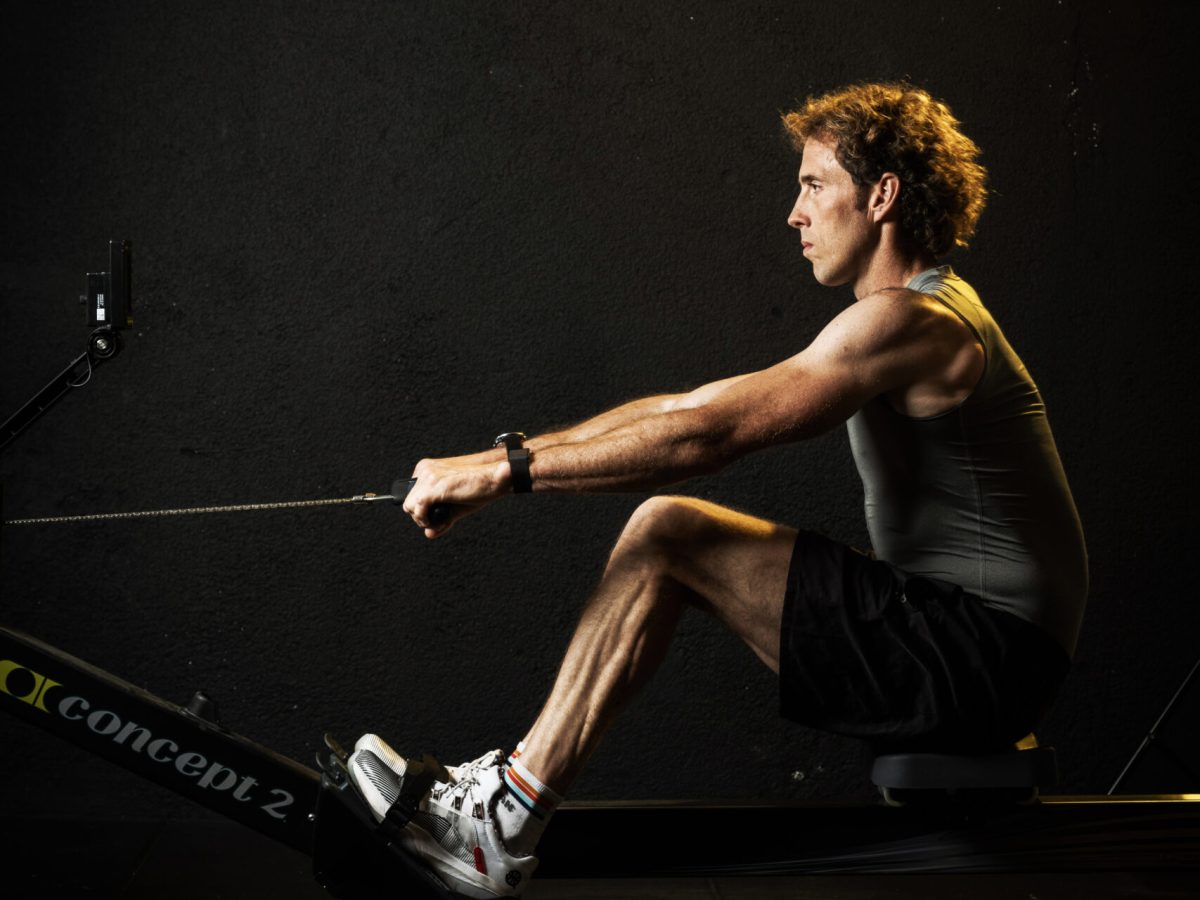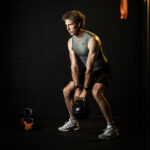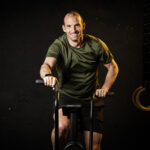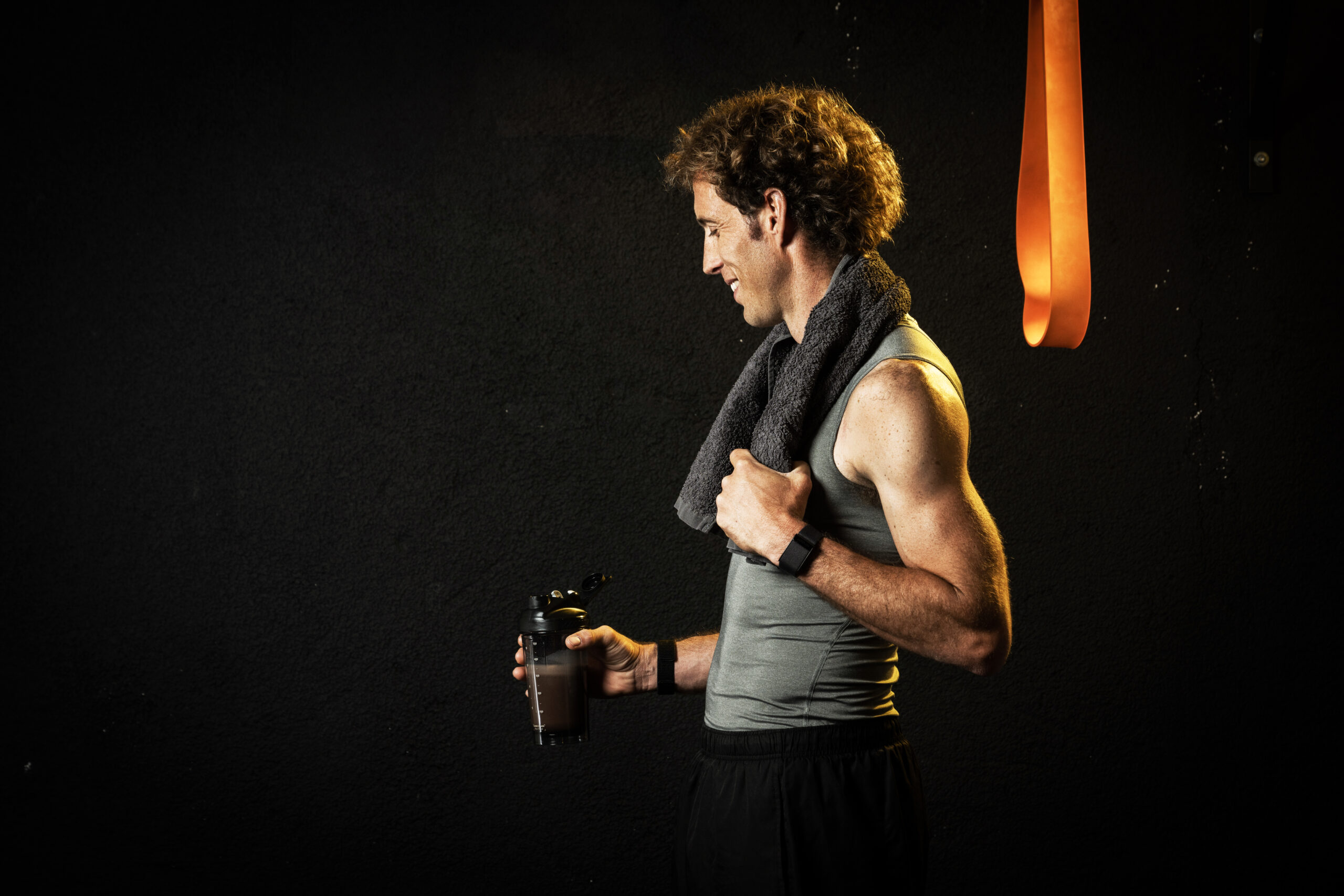Martino, how did you get into lightweight rowing?
I became junior world champion in 2003. At that time I weighed 75 kg. The national coach suggested that I switch to the lightweight class. I rejected the national coach’s suggestion. As a teenager, I was determined to build up muscle mass and compete in the open category. However, there was an extremely successful lightweight rower in my rowing club. He was 20 years older than me and a national idol. He was looking for a partner and asked me if I would row with him. I couldn’t refuse this offer. This decision was rewarded; I was soon successful and won my first world championship in the lightweight class.
How much weight did you have to lose?
After the junior championships, my weight went back up to my normal weight of 80 kg. For the following season, I had to lose about 8 kg over a period of 6 months to reach the target of 72 kg. I sweated out the remaining 2 kg before the competitions in order to reach 70 kg for my competitions. A difference of 10 kg compared to my normal weight.
How did you manage your diet?
When I switched to the lightweight class, I had no experience of nutritional planning; there was no nutritional advice at our rowing club either. I therefore relied on the advice of other athletes, which wasn’t always healthy. I drastically reduced my carbohydrates and only ate chicken and salad. This extreme diet helped me to lose 10 kg in two months, but it also caused my metabolism to slow down considerably. This made losing weight much more difficult in a later phase because my metabolism was in disarray. Without professional guidance, it was a lot of trial and error. Working with a nutritionist later completely changed my diet plan. We reintroduced carbohydrates and used supplements to help me maintain my energy levels and stabilize my weight. This experience has shown me that a balanced diet is crucial. Optimal nutrition was a decisive factor in achieving sporting success.
Did you also avoid sweets at this time?
In the early years, I ate sweets at every opportunity. However, my nutrition coach helped me to understand that the consumption of sweets was not efficient for my performance. My goal was to win competitions and not succumb to my cravings for sweets. When I realized this, I started eating healthier; oatmeal instead of Nutella or cake. Over time, my brain adapted and I no longer craved sugar. I focused on eating what made sense for my body and my performance.
Describe a typical training day!
A training day usually consisted of 3 training sessions. I got up and had a light breakfast. This was followed by 2 to 2.5 hours of rowing training on the water. After a (second) hearty breakfast, there was a workout in the gym, followed by a protein shake. After lunch, a 3-hour endurance session on the bike was on the program. Dinner consisted of protein-rich foods with vegetables.
Have you lost muscle mass while losing weight?
The challenge for me was that I never put on fat. After the end of the season, I returned to my usual weight, with my fat percentage remaining consistently low. Unlike other athletes who could easily lose fat, I had difficulty losing weight because I was already slim. To meet the weight requirements before the competitions, I was faced with a difficult choice: either lose muscle mass or lose weight by sweating. Unfortunately, I had no choice but to sacrifice muscle mass.
What are the strongest qualities you needed in lightweight rowing?
Mainly mental strength; about 99% happens in the head. It’s about pushing the boundaries. You have to be a bit crazy to do this, like those who climb Mount Everest. The social aspect was also difficult. The intense concentration, the daily high performance and the restrictions on eating led to strong emotional fluctuations. Since I stopped rowing in the lightweight class, my mood has been much more balanced.
What prompted you to switch from the lightweight category to the open category?
I appreciated my journey in the lightweight category and learned a lot. The time since I started my rowing career has shown me the remarkable potential of our bodies and that many perceived limitations are mainly mental. A lot depends on my attitude – it’s a mental game. I now feel ready and look forward to taking on new challenges in the open category.
You are also a triathlon coach. Are you thinking about whether your son (Michele, 2 months old) should choose triathlon or rowing as a sport?
It depends on his personality. Rowing is a team sport in which trust is of crucial importance. It’s fulfilling to row with people you trust. In contrast, triathlon is a solitary activity where performance is the only thing that matters. Looking back, I would choose triathlon if I could start my career again. But this realization only came later. Nevertheless, I am very satisfied with my rowing career. My advice to Michele: Believe that the body is capable of more than you think; try to push the boundaries!
Thank you very much, Martino, for the interview!
Editor’s note:
Martino’s career in lightweight rowing is a testament to the incredible mental and physical performance required in this sport. His experiences emphasize the importance of proper nutrition, the challenges of weight management and the mental strength needed to be successful. It is also clear that extreme restrictions such as a sharp reduction in carbohydrates or a drastic reduction in energy are not beneficial and can impair both metabolism and performance.







